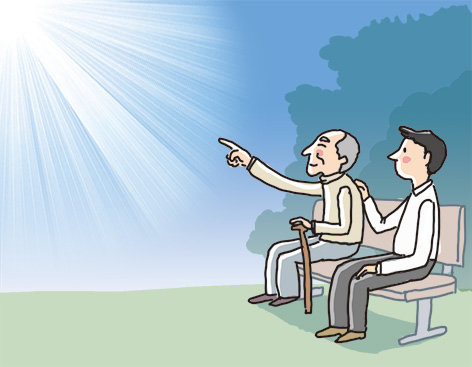Rights to sunlight
Rights to sunlight
Posted June. 01, 2022 07:24,
Updated June. 01, 2022 07:39

There is a person who is destined to die for angering a god. The only way to avoid his death is for somebody else to die for him. This is an existential situation facing a character in “Alcestis” by Euripides.
When his father visits him to offer condolences after his wife Alcestis passes away, he harshly blames his father. He said his father should have died for him as the father has lived long enough, instead of letting the wife die. His father is dumbfounded for being told like that after raising him and passing on wealth and status. However, it was not just the son who thought this way. The wife also blamed his parents before she passed away. “They better die honorably to save their son as they have reached the age to die,” she said. She resented her parents-in-law. To everybody, it seems like old people are meaningless beings that can be killed or abandoned.
In the Confucian culture that emphasizes filial duty for parents, it is hard to imagine such a scenario. While there are many stories where children sacrifice for their parents, there is almost no story of children asking their parents to die. The culture does not allow such stories. Then, is Euripides’ tragedy irrelevant to us? In fact, the issue of viewing old people as redundant beings is not just limited to “Alcestis.” We might also think that old people are redundant and can be abandoned. “You enjoy the sunlight. Don’t you think I would do the same?” How free are we from the father’s question? In reality, old people are abandoned, both physically and psychologically. The son and the father featured “Alcestis” might indeed resemble us. As the father said, being older doesn’t mean fewer rights to sunshine.







